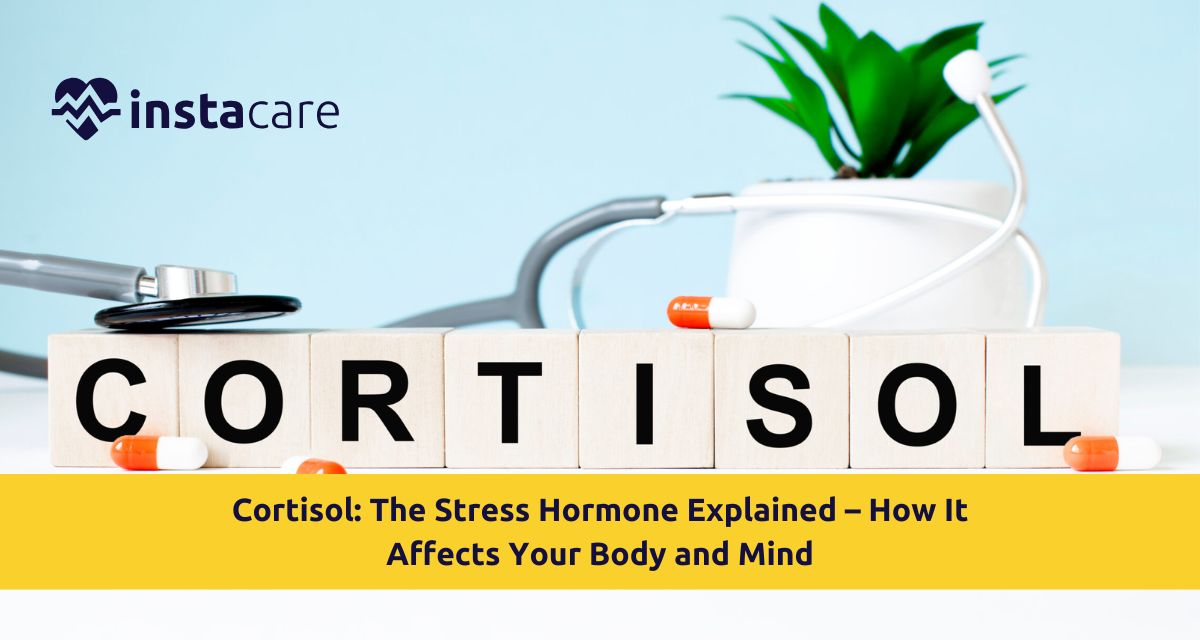What Is Cortisol?
The Role of Cortisol in the Body
Essential Processes
- Metabolism regulation: Cortisol regulates your body's carbohydrate, lipid, and protein metabolism to use as energy, especially in fasting or stressful conditions.
- Regulation of inflammation: It is a very potent anti-inflammatory drug, inhibiting excessive activation of the immune response.
- Regulation of blood pressure: Cortisol regulates cardiovascular function and upkeep of sufficient blood pressure.
- Regulation of blood sugar: It collaborates with insulin to maintain your blood glucose level within normal limits, using your brain efficiently.
- Memory enhancement: Healthy cortisol facilitates recovery of learning and memory solidification.
The Stress Response
What Causes High Cortisol Levels?
Lifestyle Factors
- Sleep: Lack of or poor sleep disrupts cortisol regulation
- Excessive caffeine: Excessive caffeine triggers the release of cortisol
- Overtraining with no recovery time: Habitual overtraining maintains the body in state of stress
- Diet: Food intake with too much processed foods and excessive refined sugar stimulates cortisol
Medical Conditions
Symptoms of High Cortisol
- Physical examination results like the facility with which the patient predisposes to obesity in the abdomen and face, purple striate, bruising, healing of wounds, muscle weakness, and thinning of the skin. Cortisol and weight gain also logically has a correlation because overproduction of cortisol leads to hunger and fat storage, particularly the visceral fat.
- Psychological and emotional expressions range from mood swing, inattention, irritability, and cortisol and anxiety. Causation is cortisol and stress increasing stress raises cortisol, increasing anxiety, raising more stress.
- Sleep is disturbed with the high level of cortisol and sleep during the night spilling over into melatonin release. Melatonin overflow and sleep do not result in restoration of slow wave sleep, leading to a continuous cycle of stress.
Read More: 333 Rule for Anxiety: Grounding Technique for Quick Stress and Panic Relief
Effects of Chronic Cortisol Imbalance
- Metabolic syndrome: Hypercortisolism induces type 2 diabetes mellitus, insulin resistance, and cardiovascular disease because it results in predominant chronic hyperglycemia and inflammation.
- Immune suppression: Sustained elevated cortisol is immunodestructive and renders infection susceptible, while elevated cortisol acutely is beneficial in helping to terminate the inflammation.
- Bone loss: Hypercortisolism inhibits bone development and calcium absorption, resulting in potential osteoporosis.
- Clouded thinking: Chronic exposure neurotoxicity to the hippocampus, interfering with learning and memory and heightened risk of dementia.
- Gastrointestinal symptoms: Cortisol elevation upsets the balance in the gut, leading to IBS-like symptoms and elevated intestinal permeability.
How to Lower Cortisol Naturally?
Reduce Stress
- Mindfulness and meditation: Mindfulness and meditation, performed on a consistent basis, lower cortisol by engaging the parasympathetic nervous system.
- Deep breathing: Slow, deep diaphragmatic breathing lowers stress hormones immediately.
- Nature time: Outdoor time in parks and other locations lowers cortisol levels naturally.
- Social connection: Healthy social relationships and social support as a buffer against stress.
Lifestyle Changes
- Sleep well: Develop consistent sleeping routines, build dark sleeping bedrooms, and sleep 7-9 hours at night to allow room for healthy sleep and cortisol cycles.
- Daily exercise: Daily moderate exercise keeps stress low, but don't over-exercise. Yoga and tai chi best balance cortisol.
- Dietary habit: Eat whole foods that is high in omega-3 fats, antioxidants, and fiber. No caffeine, alcohol, or processed sugar.
- Supplements: Ashwagandha, omega-3 fatty acids, phosphatidylserine, and magnesium will reduce cortisol, but see medical experts first before taking supplements.
When Cortisol Is Too Low?
Adrenal Insufficiency
Diagnosis and Medical Management
Testing for Cortisol Imbalance
- Morning cortisol level to make an estimate of peak cortisol
- Total day output 24-hour urine collection
- Late-evening salivary cortisol to assess elevated evening level
- ACTH stimulation test to assess adrenal function
Treatment
- Cushing's syndrome secondary Hypercortisolism is treated by surgery, radiation, or medication. Hypercortisolism is replaced by hormone drug under close medical supervision.
- In secondary increases due to stress in the absence of disease, change of life-style under therapy or counseling usually halts cortisol imbalance control.
Conclusion

